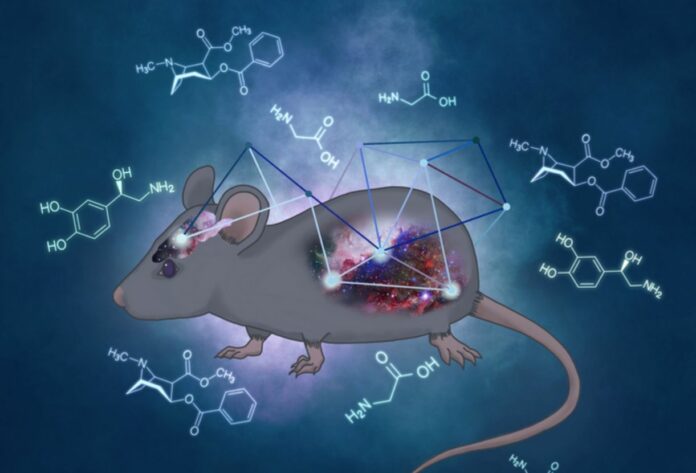New research shows that cocaine helps the bacteria grow, which in turn eats up glycine, a chemical that helps the brain work normally.
A new study published today in the journal Cell Host & Microbe says that common gut bacteria can boost cocaine’s effects in mice.
New research shows that cocaine helps the bacteria grow, which in turn eats up glycine, a chemical that helps the brain work normally.
Mice respond to drugs more strongly as glycine levels drop, and these responses include aberrant behaviors such markedly increased activity and desire.
Additionally, the mice’s sensitivity to cocaine returns to normal levels when glycine is added back into the system or when a genetically altered bacteria is used; this shows that this amino acid can function as a mediator of addiction-like behavior in animal models.
“I was interested in the gut-brain axis, and I found it very new and exciting,” remarks first author Santiago Cuesta (@_SantiagoCuesta) a neuroscientist at the University of Wisconsin School of Medicine and Public Health.
Cuesta and colleagues discovered that cocaine activates the QseC protein, which promotes the growth of -proteobacteria like E coli, in mice’s guts.
These glycine-fueled bacteria outcompete the healthy gut bacteria that already reside in our digestive systems, occupying the majority of the available resources.
“The gut bacteria are consuming all of the glycine and the levels are decreasing systemically and in the brain,” explains senior author Vanessa Sperandio (@VanessaSperand2), a microbiologist from the University of Wisconsin School of Medicine and Public Health. “It seems changing glycine overall is impacting the glutamatergic synapses that make the animals more prone to develop addiction.”
“Usually, for neuroscience behaviors, people are not thinking about controlling the microbiota, and microbiota studies usually don’t measure behaviors, but here we show they’re connected” adds Cuesta. “Our microbiome can actually modulate psychiatric or brain-related behaviors.”
“I think the bridging of these communities is what’s going to move the field forward, advancing beyond correlations towards causations for the different types of psychiatric disorders,” adds Sperandio.
Image Credit: Getty
You were reading: Common Gut Bacteria Can Enhance The Effects Of Cocaine – New Mice Study Shows
